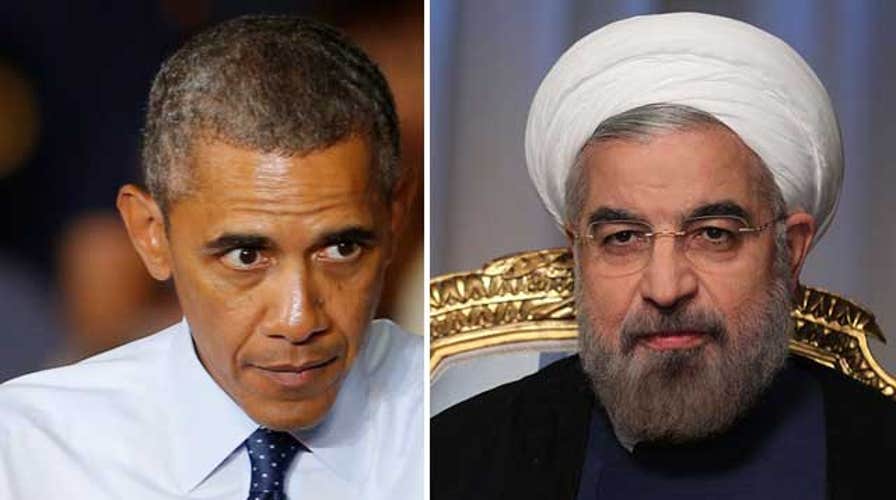Obama to meet with Iranian president after UN speech?
Eric Shawn reports from the United Nations
President Obama will not meet with Iranian President Hassan Rowhani on the sidelines of the United Nations session after Iranian officials nixed the idea, senior Obama administration officials said Tuesday.
Despite Obama announcing in his address to the U.N. General Assembly that he was opening the door to new talks over Iran's nuclear program, U.S. officials revealed that the Iranian government was apparently uncomfortable with the prospect of Rowhani chatting personally with Obama in New York.
A senior administration official said a formal, one-on-one meeting was never on the table. But, the official said, "we indicated that the two leaders could have had a discussion on the margins if the opportunity presented itself."
The official said: "The Iranians got back to us; it was clear that it was too complicated for them to do that at this time given their own dynamic back home."
An official said they were thinking a handshake or some similar gesture might be feasible, but "ultimately it became clear that that was too complicated for them at this time."
With an Obama-Rowhani chat off the table, the next opportunity for talks will be on Thursday, when Secretary of State John Kerry meets with his Iranian counterpart, as well as other diplomats.
Obama, in his address on Tuesday, announced that he's directed Kerry to pursue a new round of talks with Iran over its nuclear program.
"The roadblocks may prove to be too great, but I firmly believe the diplomatic path must be tested," Obama said.
Obama acknowledged that Rowhani has signaled interest in charting a more "moderate" course and disavowed interest in pursuing the development of a nuclear weapon. Saying the "conciliatory words" must be met by "actions," Obama said Kerry will "pursue this effort" to engage Iran, alongside representatives from the European Union and other global powers.
"We are determined to prevent Iran from developing a nuclear weapon," Obama said. He said the suspicion between the two countries can't be overcome overnight, but resolving the nuclear issue would be a "major step down a long road" toward a better relationship.
In his address to the U.N. Tuesday evening, Rowhani said Iran was ready to enter talks "without delay" and insisted his country was not interested in escalating tensions with the U.S. He said Iran must retain the right to enrich uranium, but he vigorously denied that his country was seeking to build a nuclear weapon.
Lawmakers, though, voiced skepticism.
Sens. John McCain, R-Ariz.; Lindsey Graham, R-S.C.; and Kelly Ayotte, R-N.H., released a statement saying they support the move to "test the credibility" of Iran's government but "are deeply skeptical about the real motivations behind Iran's charm offensive."
"We need to approach the current diplomatic initiative with eyes wide open, and we must not allow Iran to use negotiations as a tool of delay and deception," they said.





